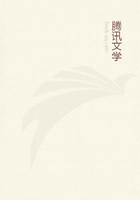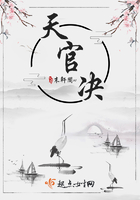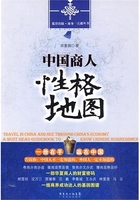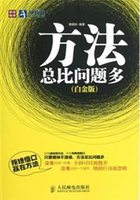Sidney Lanier has so recently passed from us that it seems desirable briefly to recount the chief incidents of his life.This task is much lightened by Dr.Wm.Hayes Ward's `Memorial', upon which, as stated in the Preface, is based this section of my essay.
Born at Macon, Ga., February 3, 1842, Sidney Lanier came of a family noted for their love and cultivation of the fine arts.
From the time of Queen Elizabeth to the Restoration, several of his paternal ancestors were connected with the English court as musical composers and as painters.The father of the poet, however, Robert S.Lanier, was a most industrious lawyer, who, after a lingering illness of three years, recently answered `Adsum'
to the summons of the supreme tribunal.The poet's mother, Mary Anderson, a Virginian of Scotch descent, likewise sprang from a family distinguished for their love of oratory, music, and poetry.
For the full title of works cited see `Bibliography'.
October 20, 1893, at Macon, Ga.
With such an ancestry we are not surprised to learn that Sidney's earliest passion was for music, and that in boyhood he could, although untutored, play on almost every kind of instrument.He preferred the violin, in playing which he sometimes sank into a deep trance, but in deference to his father's view gave it up for the flute, his power over which we shall hear of farther on.At first, strange to say, he considered music unworthy of one's sole attention, but later he came to rank it as his fullest expression of worship.
At fourteen Sidney entered the Sophomore Class of Oglethorpe College, near Macon, Ga., and, with a year's intermission, graduated with first honor in 1860, when just eighteen.To Professor James Woodrow, of Oglethorpe, now President of South Carolina College, Lanier declared that he owed "the strongest and most valuable stimulus of his youth."On graduating he was given a tutorship in his Alma Mater, a position that he held until the outbreak of the Civil War.
The lecture-room was now exchanged for the battle-field;in April, 1861, Lanier entered the Confederate Army as a private in the Macon Volunteers of the Second Georgia Battalion, an organization among the first to reach Norfolk and that still keeps up its corporate existence.In the spring of 1862 Lanier was joined by his young brother, Clifford; and throughout the war each seemed to vie with the other in brotherly love;for, while both were offered promotion, neither would accept it, since to do so would have entailed separation from the other.
The leisure time of his first year's service Sidney spent in the study of music and the modern languages.He was engaged in several battles in Virginia, but afterward was transferred, with Clifford, to the Signal Service, with head-quarters at Petersburg.
Here he had access to a small library, of which he made sedulous use.
In 1863 his company was mounted, and served in Virginia and North Carolina.
In the spring of 1864 both brothers were transferred to Wilmington, the head-quarters of the Marine Signal Service, in which they remained to the end of the war.Finally the two brothers were separated, each becoming signal officer of a blockade-runner.Sidney's vessel was captured, and for five months he was a prisoner at Point Lookout, Md., with nothing but his flute to solace him.It was the exposure of prison-life, no doubt, that first led to decline of health by developing the seeds of consumption, a disease that was to carry off his mother and that he was to struggle with the last fifteen years of his life.
Released from prison in February, 1865, he returned to Georgia, for the most part afoot, and reached home March 15th.
An account of his war-life is given in his novel, `Tiger-lilies', treated below.
It is sometimes erroneously stated that each was put in charge of a blockade-runner.
During the succeeding nine years (1865-73) his life was checkered indeed.
Seriously ill for six weeks, he arose from his bed to see his mother carried off by consumption and to find himself suffering with congestion of the lungs.Slightly relieved, Lanier turned his hand to various projects for making a living: clerking in a hotel in Montgomery, Ala., for two years; writing and publishing his novel, `Tiger-lilies'; teaching at Prattville, Ala., one year, during which timehe married Miss Mary Day, of Macon, Ga.; studying and then practising law with his father at Macon, Ga., for five years; now, in the winter of 1872-73, trying to recuperate at San Antonio, Texas, for hemorrhages had begun in 1868, and a cough had set in two years later; and, finally, settling in Baltimore, December, 1873, to devote himself to music and literature.
April, 1867.
December 19, 1867.
Against the son's devotion of his life to music and literature the father protested, chiefly on business grounds, and begged him to rejoin himself in the practice of the law.Thanking his father for his thoughtfulness, Lanier justified his own course in these earnest words: "My dear father, think how, for twenty years, through poverty, through pain, through weariness, through sickness, through the uncongenial atmosphere of a farcical college and of a bare army and then of an exacting business life, through all the discouragement of being wholly unacquainted with literary people and literary ways -- I say, think how, in spite of all these depressing circumstances and of a thousand more which I could enumerate, these two figures of music and poetry have steadily kept in my heart so that I could not banish them.
Does it not seem to you as to me, that I begin to have the right to enroll myself among the devotees of these two sublime arts, after having followed them so long and so humbly, and through so much bitterness?"1 Of course, the father yielded and did all that his slender means would allow toward keeping up his son, who henceforth devoted every energy to music and literature.

